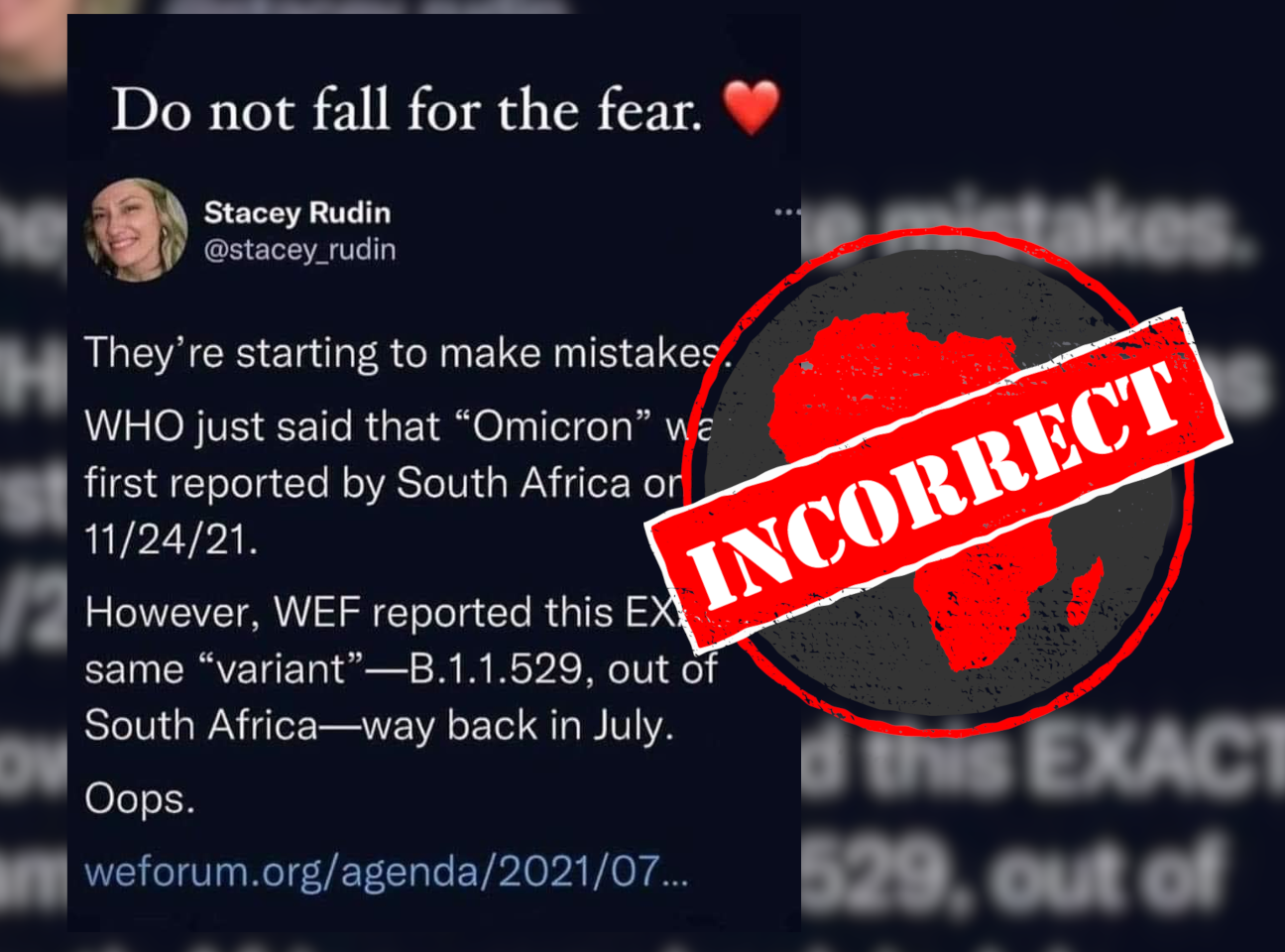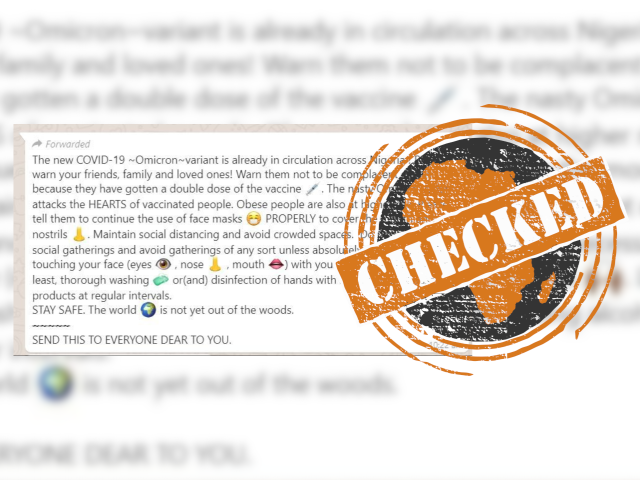“They’re starting to make mistakes,” begins a viral tweet by US-based anti-lockdown activist Stacey Rudin, posted on 27 November 2021.
It’s not clear who “they” are, but the tweet seems to accuse the World Health Organization (WHO) and World Economic Forum (WEF) of a conspiracy related to the new Omicron variant of Covid-19.
They’re starting to make mistakes.
— Stacey Rudin (@stacey_rudin) November 27, 2021
WHO just said that “Omicron” was first reported by South Africa on 11/24/21.
However, WEF reported this EXACT same “variant”—B.1.1.529, out of South Africa—way back in July.
Oops.https://t.co/KcFJ6GSyq5 https://t.co/aYfsJBi9zT
“WHO just said that Omicron was first reported by South Africa on 11/24/21,” the tweet reads. The US date format refers to 24 November 2021.
“However WEF reported this EXACT same ‘variant’ - B1.1.529, out of South Africa - way back in July.”
It ends with: “Oops.”
The tweet includes two links. One is to the WHO’s 26 November announcement that Omicron, with the lineage identification of B.1.1.529, had been classified as a variant of concern.
The other link is to a WEF explainer dated 26 November 2021 and headlined “This is how scientists detect new variants of Covid-19”.
Screenshots of the tweet have been doing the rounds on Facebook in South Africa.
Did Omicron – “B1.1.529, out of South Africa” – really appear in a WEF article “way back in July”?

What are variants?
The technical name for the new coronavirus that causes Covid-19 is severe acute respiratory syndrome coronavirus 2, or Sars-Cov-2.
Viruses are little more than genetic material wrapped in protein, so they mutate quickly. These mutated viruses are known as strains or variants, and are classified into lineages.
Some variants are less infectious and die out quickly. But other mutations can make the variant more infectious, or cause more severe Covid-19 illness, or reduce the performance of vaccines, treatments and social measures. These become variants of concern.
There are currently five Sars-Cov-2 variants of concern: Alpha, Beta, Gamma, Delta and, now, Omicron.
Omicron was first detected on 22 November by the Network for Genomics Surveillance in South Africa, with a high frequency in the densely populated Gauteng province.
World Economic Forum explainer updated
The confusion in Rudin’s tweet may be from a lack of appreciation that websites can be updated.
The WEF explainer she links to – headlined “This is how scientists detect new variants of Covid-19” – was indeed first published on 12 July 2021.
But it was updated on 26 November to include information on the newly identified Omicron.
A disclaimer at the top of the explainer reads: “This article was originally published on 12 July 2021. It was updated on 26 November to include information about the new strain, B.1.1.529.”
The Wayback Machine, a project of the Internet Archive, saves the pages on websites as they appear over time. In July 2021, it saved the original version of the WEF explainer.
The original does not mention Omicron or B.1.1.529.
The World Economic Forum did not report on Omicron back in July 2021, long before the variant was identified and named. It simply updated its July 2021 article, in November 2021, to include information on Omicron.
Republish our content for free
For publishers: what to do if your post is rated false
A fact-checker has rated your Facebook or Instagram post as “false”, “altered”, “partly false” or “missing context”. This could have serious consequences. What do you do?
Click on our guide for the steps you should follow.
Publishers guideAfrica Check teams up with Facebook
Africa Check is a partner in Meta's third-party fact-checking programme to help stop the spread of false information on social media.
The content we rate as “false” will be downgraded on Facebook and Instagram. This means fewer people will see it.
You can also help identify false information on Facebook. This guide explains how.





Add new comment